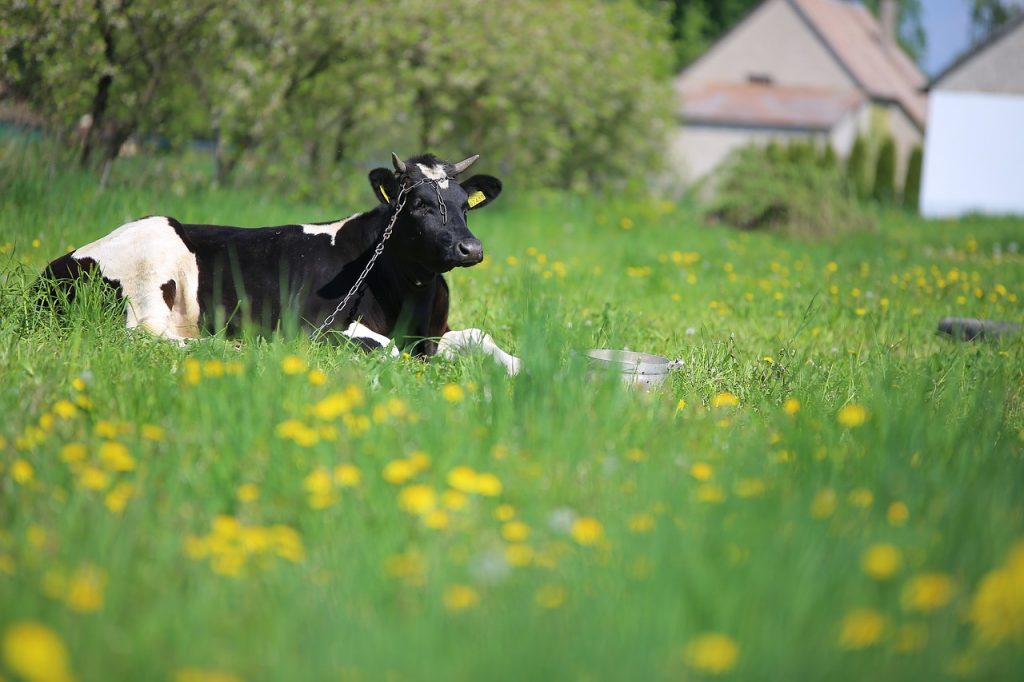How is agriculture part of the solution to climate change?
.
Farming is often seen as the ‘villain’ – so says the Western Morning News today:
The Future of Farming: Farmers ‘not the villain’ in climate change debate
With the eyes of the world currently on the COP26 Summit in Glasgow, the case for how farming and land use can deliver for climate, nature and public health is high on the industry’s agenda, Athwenna Irons reports in the seventh part of the Western Morning News’ Future of Farming series
Ask any online search engine what steps you can take to fight climate change, and one of the suggestions will almost certainly be to eat less meat. A swathe of research released over the last few years has challenged the impact that eating meat, especially beef and pork, has upon the environment. Greenpeace, for example, goes as far to say that the global meat industry leaves a “trail of destruction” all over the world.
The organisation advises that in the UK, we need to be eating 70% less meat and dairy by 2030 to prevent climate breakdown. “By eating mostly plant-based food, we could feed more people – with all the calories and nutrition needed for a healthy diet – without destroying forests,” it adds. Furthermore, Greenpeace is calling on major retailers such as Tesco to halve the amount of meat they sell by 2025, and ultimately phase out “industrial meat” entirely.
Here lies the problem for British and indeed South West farmers, for whom industrial-scale production and deforestation couldn’t be further from the truth. Many living in the rural Westcountry will only have to look out of their windows to see the extensive, grass-based systems which make our cattle herds and sheep flocks among the most efficient and sustainable in the world.
According to the Government’s Committee on Climate Change, greenhouse gas emissions from UK beef are about half the global average. So, not all red meat production around the world is the same. In fact, figures published by Defra (Department for Environment, Food and Rural Affairs) show that 87% of UK beef is produced using predominantly forage based diets, with only a very small amount of soya in rearing diets.
Indeed, recent comments made by Henry Dimbleby to the Environment, Food and Rural Affairs (Efra) Committee are worth mentioning. Giving evidence on the post-Brexit Australia trade deal, the author of the Government’s National Food Strategy accused the Prime Minister Boris Johnson of “exporting cruelty and carbon emissions”.
The Future of Farming: Farmers ‘not the villain’ in climate change debate – Devon Live

The Royal Agricultural Society of England has released a paper with similar themes:
Pre-COP26 Briefing on UK Farming’s Response to Climate Change – Farm of The Future: Journey to Net Zero
Showcasing innovative solutions, the briefing paper “Farm of the Future: Journey to Net Zero”. The paper addresses key policy issues, including: sound economic valuation of natural capital, a consistent cross-sectoral food, energy and carbon transition policy, the introduction of standardised farm-level emissions accounting, and the adoption of environmental and carbon impact labelling on food to help inform consumer choice.
News Article – Innovation for Agriculture
Farm-of-the-Future-Journey-to-Net-Zero-Pre-COP26-Briefing-Paper.pdf
As has the National Farmers’ Union:
Achieving net zero – meeting the climate change challenge
How is agriculture part of the solution to climate change?
Climate change is arguably the greatest environmental challenge facing the world and British farmers are in the frontline of increasingly frequent weather extremes.
Agriculture is uniquely placed to be part of the solution to climate change, as it is both an emissions source and a sink. The diagram below shows how farming processes capture carbon dioxide (CO2), from the air and turn it into a wide range of foods, fibres and fuels. Farmers also have the ability to protect carbon reserves already present in soils and vegetation.
Emissions from UK farms currently amount to about 10% of UK GHG emissions. But in stark contrast to the rest of the economy only a tenth of this is carbon dioxide. More than half of agricultural GHG emissions are methane (CH4) and nearly 40% are nitrous oxide (N2O). Reducing these emissions is more difficult than cutting carbon dioxide, because they result from complex natural soil and animal microbial processes.
But by enhancing the ability to capture carbon, we can use it to generate ‘negative emissions’ – actively removing CO2 from the atmosphere to balance the CH4 and N2O emissions from food production.
Achieving net zero – meeting the climate change challenge
In fact, these themes are now everywhere across the media:
UK’s first carbon neutral potato hits shelves – FarmingUK News
COP26: UK Dairy Roadmap sets net zero climate targets – Farmers Weekly
With a great story from ITV in the West Country:
COP26: The farmers who say they’re part of the climate change solution | ITV News West Country